The December wedding that wasn’t to be
The last time Pakistan and India played a full bilateral series was when India visited the former in 2006
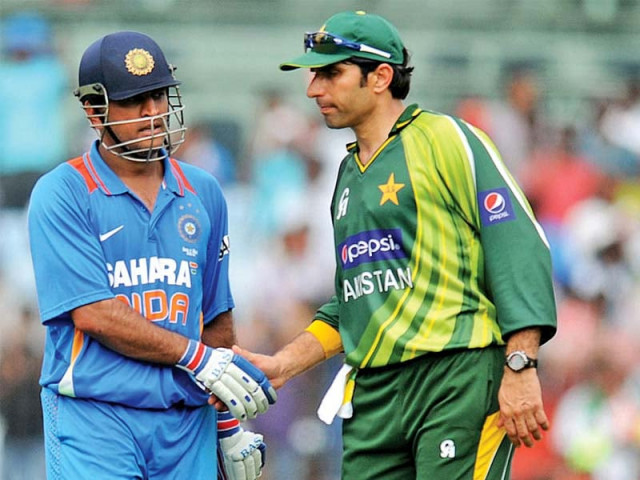
Pakistan and India last met in a bilateral series in early 2013, with the latter failing to reciprocate the tour. PHOTO COURTESY: BCCI
Enter 2015. Australia lifted their fifth ICC World Cup trophy, Bangladesh shocked the world of cricket by first whitewashing Pakistan and then beating India, Mohammad Amir returned to competitive cricket after his ban ended, South Africa suffered their first away Test series defeat in nine years and the first day-night Test match made its debut in an effort to revive faltering interest in the longest format of the game.
What did not happen was the materialisation of the highly-anticipated, crowd-pulling and adrenaline-pumping Pakistan-India series, which was scheduled to take place in December as a fitting spectacle to ring out the old year and ring in the new.
The last time Pakistan and India played a full bilateral series was when India visited the former in 2006 and the Men in Green toured India in 2007-08, after which terror attacks in Mumbai in 2008 effectively put any full-fledged series on hold indefinitely.
Cricket’s fiercest rivals have not faced each other in a bilateral series since early 2013, and then too it was a one-sided and short limited-series affair that India failed to reciprocate.
Post-2012, the politicisation of the sub-continent’s most popular sport continues to this day, with both sides only meeting in the 2013 Champions Trophy and then in the 2015 World Cup.
That’s not to say that there were no attempts to pit the two teams against each other. In 2014, a MoU was signed between the Pakistan Cricket Board (PCB) and the Board of Control for Cricket in India (BCCI) to play six bilateral series with Pakistan hosting four and India two from 2015 to 2023, of which the first one was to be played in December this year.

The said MoU was supposedly inked in exchange for Pakistan’s support for the sweeping changes introduced in the International Cricket Council (ICC) last year that handed over major control of all cricketing affairs to India, England and Australia.
Three Tests, five ODIs and two T20Is were agreed upon for the opening instalment of the six series in the UAE, which has been Pakistan’s home ground since the 2009 militant attack on the Sri Lankan team bus.
All was well and good in the world of PCB, which was gloating over its achievement of having nailed an important series that would ensure a healthy cash flow in its coffers, and telling anyone and everyone who would listen about the vital accomplishment. Eerily though, its Indian counterpart kept mum and did not utter a single word regarding the agreement for many days to come.
December drew near and continued silence on the BCCI’s part threw the PCB into a flurry of agitation, with chairman Shaharyar Khan changing statements regarding the correspondence between the two bodies faster than lightning and Indian board chief Shashank Manohar insisting that their country’s new government is yet to approve the forthcoming series.
What followed was a classic case of wooing and rejection. The PCB alternatively persuaded, cajoled and probed the BCCI in an attempt to extricate a comprehensible answer; on the other hand, the latter’s reluctant responses and evasiveness clearly communicated their ‘not-in-the-mood’ stance on the subject. During the entire wait-and-see charade, Shaharyar and PCB Governing Board member Najam Sethi even flew out to India — ostensibly on the BCCI’s invitation — for formal meetings, only to be forced to leave the country after a Hindu right-wing party, Shiv Sena, stormed the board’s headquarters to protest the as yet elusive series between the two nations.
Finally, the neighbours did send across their first concrete message about the series, but only to tell Pakistan that the UAE was an unacceptable venue for them and that the Men in Green may come to India to play, offering no reason for their change of heart and claiming that they were not answerable to anyone about their decision.
This, of course, was not part of the plan, and the PCB vehemently opposed the suggestion of their team visiting India for what was their ‘home’ series. Matters came to a head, with neither of the parties ready to relinquish their demands but Pakistan still eager for the series to see the daylight.
In came Giles Clark, the England and Wales Cricket Board chairman as well as the head of the ICC taskforce in Pakistan. The three boards’ heads met in Dubai to seek a solution to the deadlock, which came to this: the series was decided to be played in Sri Lanka and was shortened to three ODIs and T20Is. However, the final say was still subject to approval from Pakistan and India’s respective governments.
Pakistan Prime Minister Nawaz Sharif gave his blessings to the proposed changes in the original plan, but once again, India stalled on the pretext that the Indian Prime Minister was yet to give the go-ahead.
December is counting its very last days, and there is still no word from the neighbours. With that, the series has been put securely to bed, induced with a coma that will remain in effect for another indefinite length of time. Farewell, 2015.
Published in The Express Tribune, December 29th, 2015.
Like Sports on Facebook, follow @ETribuneSports on Twitter to stay informed and join in the conversation.

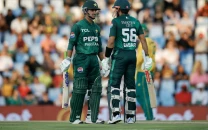

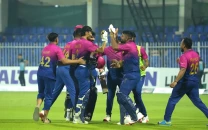
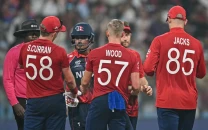
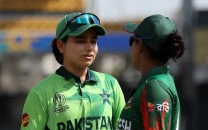
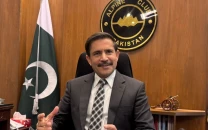












COMMENTS
Comments are moderated and generally will be posted if they are on-topic and not abusive.
For more information, please see our Comments FAQ